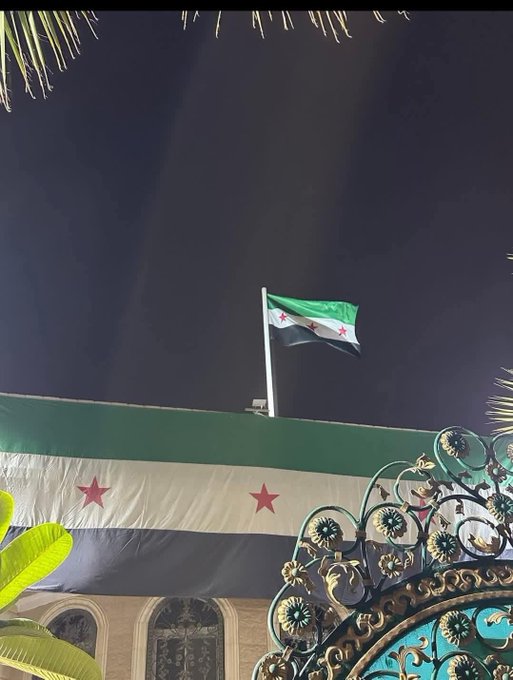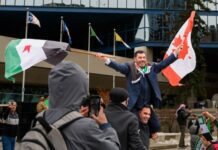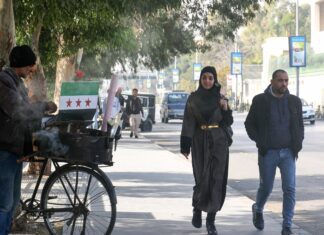
As Syria begins to emerge from the shadow of Bashar al-Assad’s oppressive regime, its leaders are calling for a peaceful transition and renewed cooperation with neighboring countries and international powers. Revolutionary leaders stress the importance of social unity, the protection of minorities, and a focus on rebuilding the nation on the foundations of justice and equality.
In a statement issued by the Command of Military Operations (CMO), Syria’s new leadership emphasized the protection and continuity of international and humanitarian institutions operating within the country.
“We affirm that all governmental institutions, international organizations, and United Nations offices operating in our land are institutions serving the people. It is our duty to protect, preserve, and ensure the continuity of their work,” the statement read.
This assurance comes amid ongoing efforts to stabilize liberated areas, restore public services, and ensure the safety of vulnerable populations, particularly minority groups such as Christians. The Department of Political Affairs reinforced this commitment in a message to Wadi al-Nasara, a predominantly Christian region:
“We call on the Christians of Wadi al-Nasara and Homs to stand against oppression, as integral members of Syria’s national fabric. Future Syria will include all its citizens in unity and coexistence.”
Syria’s transitional leaders are extending an olive branch to neighboring nations, emphasizing a desire for cooperative relationships based on mutual respect and shared interests. Addressing Jordan, a key regional player and host to millions of Syrian refugees, the Department of Political Affairs stated:
“The liberation of Syria will enable the return of millions of refugees to their homes. It will end Assad’s era of corruption, drug trafficking, and disregard for the region’s interests. The time has come to end this dark chapter and work together to build Syria’s future.”
Syria has also signaled openness to engaging with countries such as Iran, Russia, and China, provided their actions align with the national interests of the Syrian people. This approach demonstrates a commitment to balanced diplomacy and the rejection of external exploitation.
A cornerstone of the post-Assad vision is the safeguarding of minorities and vulnerable communities. Christian leaders, including the Antiochian Orthodox Church, have called for a future that guarantees justice and equality for all Syrians. In a statement, the church warned against repeating the mistakes of the past and highlighted the need to preserve Syria’s historical diversity.
“The path of progress and reconciliation is the only option to get out of the accumulated crises,” the Greek Antiochian Order also affirmed its commitment to promoting national unity, citing the contributions of Christian leaders to the revolutionary struggle and calling for a secular and democratic civil state.
As the country shifts from conflict to rebuilding, the new Syrian leadership has laid out priorities for reconstruction and sustainable development. The Department of Political Affairs emphasized the need for social reconciliation, economic reform, and the creation of jobs to foster stability.
“The liberation of Syria marks a victory for all those who sacrificed for its unity. A new chapter begins with a focus on reconstruction, sustainable development, and restoring normal life,” the department said.
Revolutionary leader Ahmad Al-Sharaa, also known as Abu Muhammad al-Jolani, echoed this sentiment, urging fighters to act with humility and care as they secure the nation’s future, “Be gentle with your people and loved ones and show them kindness and respect. Protect public institutions, for they belong to the great Syrian people.”
The transitional government has called on the international community to play a proactive role in ensuring accountability for the Assad regime’s crimes. The Department of Political Affairs issued an urgent notice warning of potential atrocities against detainees and urging the establishment of a monitoring mechanism to protect lives and secure justice. “The international community is responsible for protecting detainee lives and holding the regime accountable,” the statement read.
As Syrians begin the arduous task of rebuilding, the revolution’s leaders are urging unity and cooperation. The Command of Military Operations declared, “In the new Syria, where everyone lives in peace, justice prevails, and truth is upheld, every Syrian will be honored, and their dignity preserved.” With its focus on inclusivity, justice, and regional cooperation, post-Assad Syria is setting a course for a brighter, more hopeful future, leaving behind decades of oppression and conflict.








